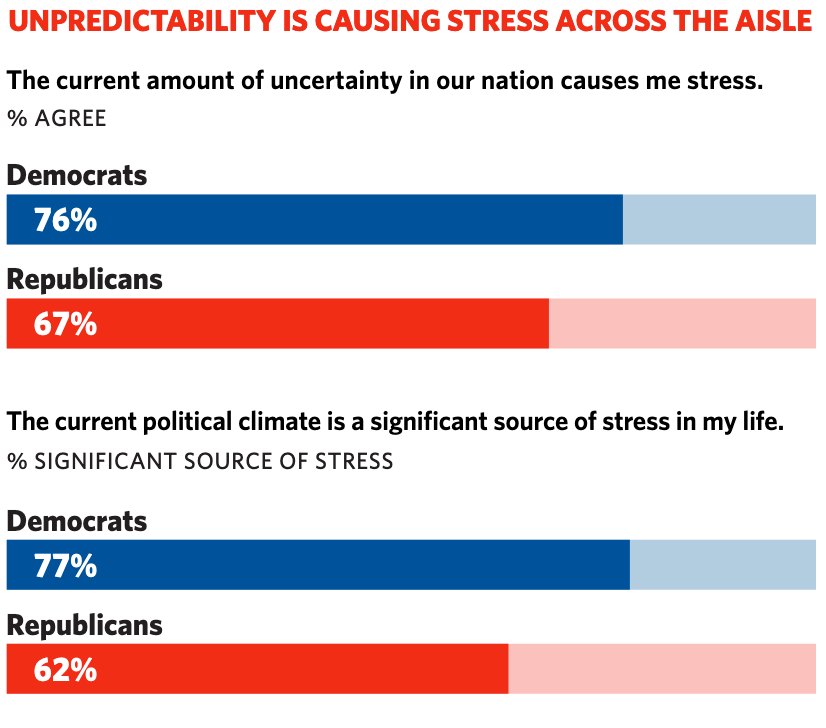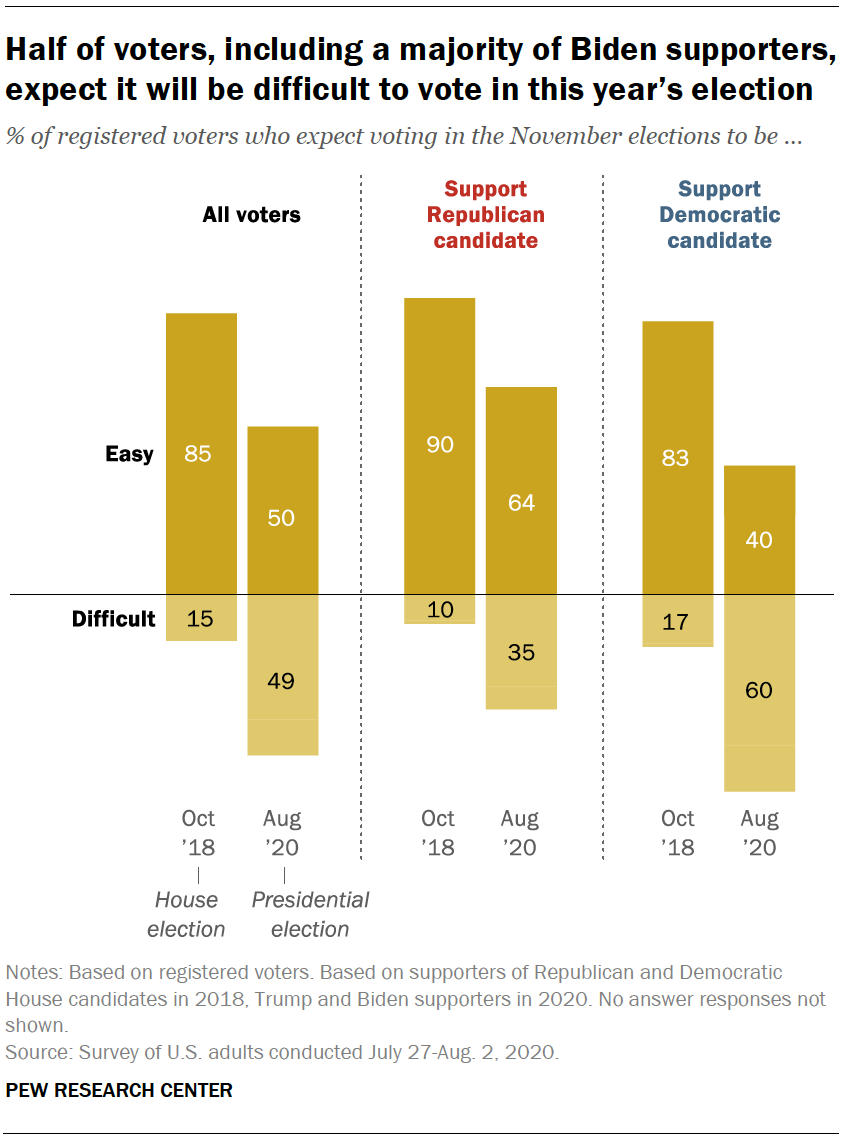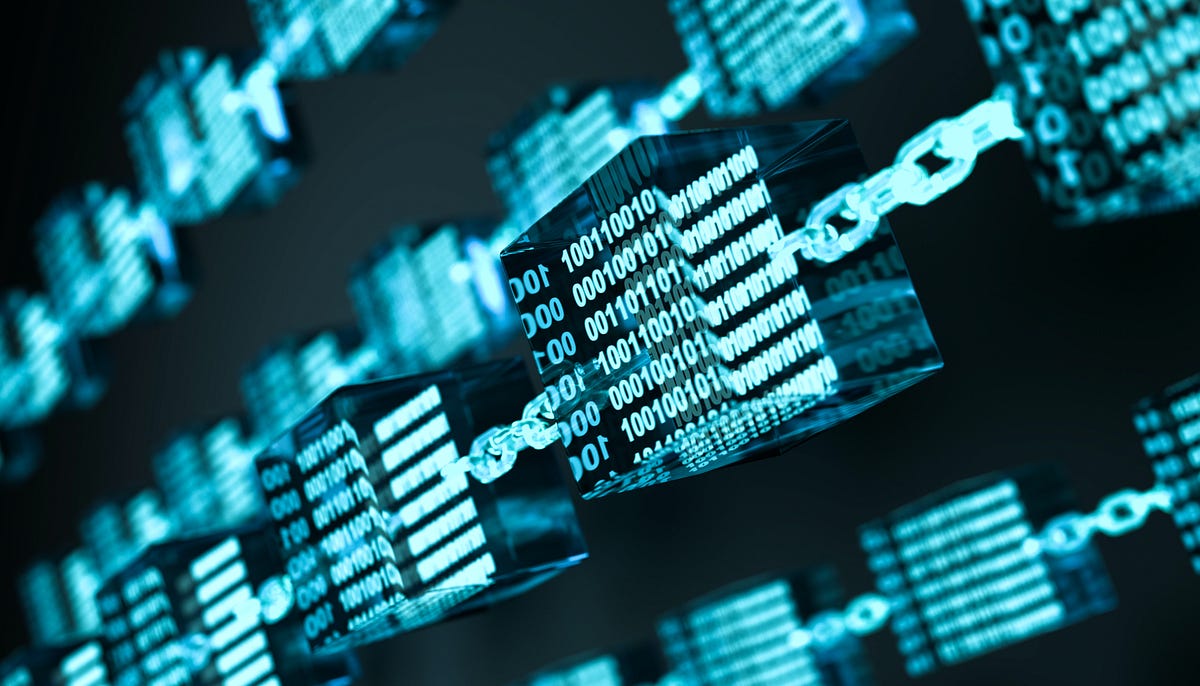The State of Our Nation
Before COVID-19 forced us to physically distance from one another, a 2017 study by the American Psychological Association (APA) reported that “The Future of Our Nation” and the “Current Political Climate” were the number one and number four most prominent stressors for Americans, respectively. A follow up report in July 2020 highlights that on both fronts, stress has increased for many regardless of political affiliation.

Chart taken from apa.org’s July 2020 report on “Stress in the Time of COVID-19"
When faced with stress, many attempt to “control their controllables” by focusing on specific actions they can take to make sense of the constant noise around them.
One such action is becoming involved in the political process. If you don’t like what you see going on in your country, your state, your city, or your village, voting someone into office who you believe will work to turn it around may provide a sense of empowerment. After all, you’re fulfilling your civic duty and making American Democracy more vibrant and functional in the process.
But what happens when we can’t trust our own Democracy?
Common Concerns & Partisan Divide
Back in January, 41% of American adults indicated that they think the U.S. is either “not very prepared” or “not prepared at all” to keep this November’s election safe and secure. Respondents to this poll provided their answers:
- before a surge in absentee ballot requests for the November election (Michigan is seeing a record ~3.5x increase in requests compared to 2016)
- before absentee ballot vote-counting issues arose from bureaucratic shortcomings in places like Milwaukee and New York City (20% of voters in New York’s 12th Congressional District who submitted absentee ballots may ultimately have their votes thrown out)
- before the United States Postal Service (USPS) faced financial dire straits and operational changes (former Republican National Committee deputy finance chairman and current USPS Postmaster General, Louis DeJoy, has since stated that the mail service would only pursue dramatic operational changes after the November election)
People increasingly feel that casting a vote will be difficult in November, and recent events have not helped to put people at ease. Given the health concerns associated with physically traveling to polling centers, interacting with and standing in line among crowds of people, Americans’ desire to vote-by-mail seems justified.
However, political partisanship has taken hold of the “vote-by-mail” issue; 17% of Trump supporters and 58% of Biden supporters prefer to mail in their ballots, respectively. This partisan ideological divide is also reflected by how difficult Republicans and Democrats expect it will be to vote in November.

Chart taken from pew.org
Americans are experiencing stress over concerns for the future of our country. Increasing demand for mail-in ballots has already resulted in operational snags and disenfranchised voters. People are concerned with simply being able to cast a vote.
So why has the USPS deactivated mail sorting machines and allegedly removed mailboxes? _(Emails from USPS headquarters show that disconnected sorting machines will not be reconnected.) _These changes are sure to cause more stress and uncertainty as we approach November 3rd.
#blockchain-technology #voting #election-2020 #tech #cybersecurity #blockchain
